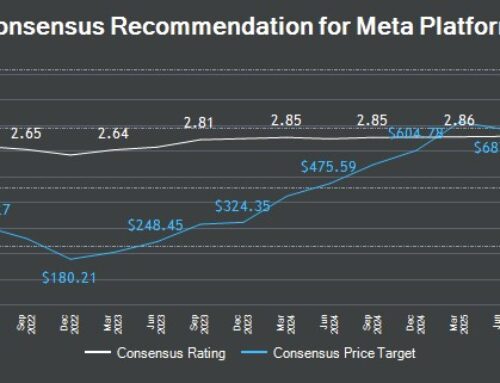The Cannabinoid of the Future? Hemptown USA at the Forefront of CBG’s Rise to Prominence
June 21, 2019
June 21, 2019
- Widely known as the “mother of all cannabinoids,” cannabigerol is believed to have multiple benefits and medical applications in areas such as autoimmune conditions, cancer, pain management, inflammation and more
- CBG oil’s market price in the U.S. is currently two to four times higher than the price of CBD oil
- As genetic advances lead to higher yields, CBG looks set to become a prominent part of the cannabinoid market
- Hemptown USA is working to ensure sustainable production of CBG and is positioned to produce about 40 percent of the North American supply of CBG in the near future
Cannabigerol (CBG) ranks among the cannabinoids that will potentially change the future of the cannabis product market. While CBD currently dominates the landscape, scientific advances and genetics could contribute to the rising prominence of CBG in the future.
Currently, the CBG content in most plants is very low – it remains less than one percent. However, genetics programs can boost that concentration and increase extraction yield. One of the companies at the forefront of CBG’s rise to prominence is Hemptown USA. With its 500-acre outdoor production facility in Oregon focused exclusively on CBG, and with access to over one million rare CBG seeds programmed to yield between 15 and 20 percent CBG, Hemptown is positioned to dominate the market.
The prominence of CBG is rising due to its multiple beneficial effects and a changing legislative landscape. What does the future hold for this currently rare cannabinoid? What have researchers discovered so far about it?
CBG: An Overview
CBG was discovered by Dr. Yechiel Gaoni and Professor Raphael Mechoulam in 1964. It is one of the cannabinoids exclusively produced by the cannabis plant. CBG is often called the mother of all cannabinoids, because it plays a crucial role in the synthesis of other cannabinoids.
CBG is non-psychotropic, which means that it doesn’t produce a high, like tetrahydrocannabinol (THC) does (http://nnw.fm/mT2u9). In this sense, it is more similar to cannabidiol (CBD). THC and CBD, however, both start out as CBG in the plant. Cannabigerolic acid (CBGA) is the precursor to both of those, and, when specific enzymes in the plant break it down, it forms tetrahydrocannabinolic acid (THCA), cannabidiolic acid (CBDA) and cannabichromenic acid (CBCA).
In the plant, these acids are exposed to ultraviolet light and heat. This process contributes to the formation of THC, CBD and CBG (as well as other unique cannabinoids).
The nature through which these compounds are synthesized means that there will be a predominance of either THC or CBD in the plant. Scientists are currently working on the production of plants that produce more CBD and less THC. These genetic experiments have also been taken to the next level – attempting to boost the CBG yield of the plant.
The Numerous Potential Benefits of CBG
CBG is considered crucial for the cannabis industry, because clinical research so far suggests an array of important and beneficial effects.
Current literature suggests that CBG is a potent anti-inflammatory and anti-cancer agent (http://nnw.fm/sZaW1). While research has so far been limited due to the low concentrations of CBG in plants, genetic advances are giving the scientific community a chance to work with cannabigerol and test its complete range of diversified applications.
There’s some evidence that CBG is a good treatment option for anxiety and depression. In addition, it could be an effective natural option for addressing medical problems like glaucoma, inflammatory bowel disease, neurological conditions, bladder disorders and bacterial conditions.
CBG Production: Challenges to Overcome
Seed genetics play a crucial role in boosting CBG yield and making it readily available on the market. Companies like Hemptown are working hard to ensure the sustainable production of CBG. In fact, the company is projected to produce approximately 40 percent of the North American CBG supply in the near future.
The premium genetics of Hemptown seeds allow the company to grow plants to full maturity without compromising the CBG content. Usually, producers have to harvest very early in order to obtain CBG in the 1 to 2 percent range. As the plant grows, the quality of biomass improves and allows for maximized extraction efficiency. Once fully mature and ready for harvest, Hemptown’s Oregon crop is expected to yield a staggering 10 percent CBG.
Genetic work has already enabled scientists to produce the world’s first THC-free strains. These plants have high medicinal potential due to the optimal CBD and CBG concentrations (http://nnw.fm/EMe7V).
As CBG quantities in plants increase due to genetic advances, the compound will move out of the realm of the great unknown. In addition, the genetic modifications will be opening the door toward mass production due to optimized yields and more efficient processes. Steps in that direction have already been made, and it seems as though it’s only a matter of time before CBG products start dominating the market.
CBG Market Forecasts
CBG can increase the range of medicinal applications of other cannabinoids. It has been shown to have high pain relief potential (http://nnw.fm/x8Rw6), while other research indicated benefits in the realm of autoimmune conditions (http://nnw.fm/50Ihg) and multiple sclerosis (http://nnw.fm/Gju0x).
Companies like Hemptown are pioneers when it comes to the production of such innovative cannabinoids (http://nnw.fm/5cC7R). In 2019, the company acquired $5.5 million worth of Oregon CBD Seeds, including one million rare CBG seeds. In addition to Oregon, the company is also growing in Kentucky and Colorado, totaling just over 1,500 acres. Hemptown is projecting 2020 revenue from its 2019 harvest to exceed $200 million, and the company is planning to expand cultivation to 2,500 acres for the 2020 growing season.
Growing demand and the scarcity of CBG are determining factors for the current market dynamics. At the moment, the market price for CBG oil in the U.S. is two to four times the price of CBD oil. Pioneers such as Hemptown USA are already eyeing the multiple opportunities that CBG provides. As forecasts suggest that it’s likely that CBG will rival CBD and may even surpass its popularity in the years to come.
For more information, visit the company’s website at www.HemptownUSA.com
Search
RECENT PRESS RELEASES
Related Post




